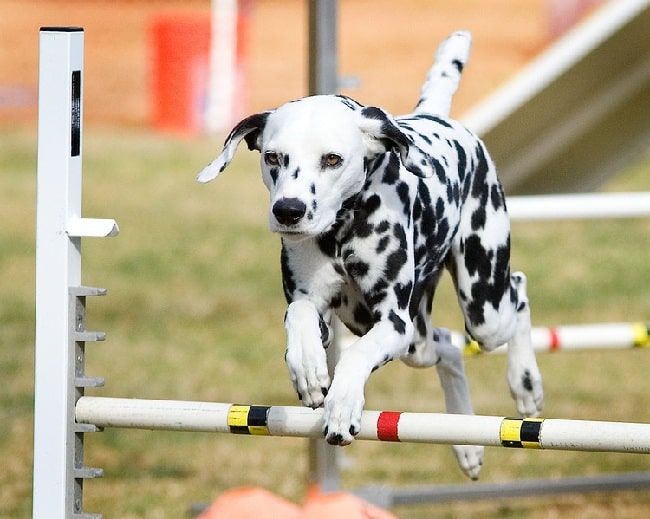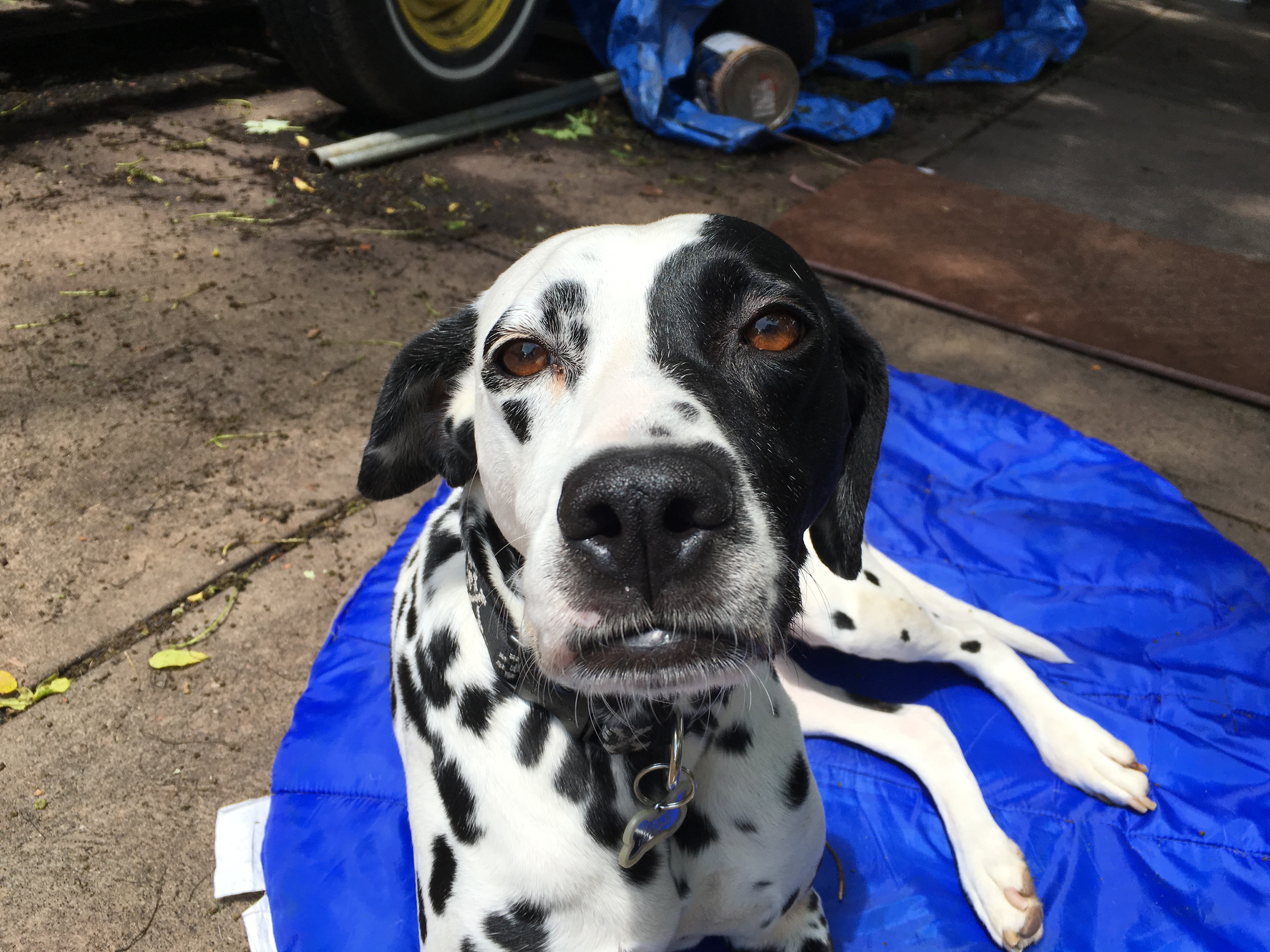As a Dalmatian owner, you may have noticed that these beautiful spotted dogs can sometimes exhibit challenging behaviors. Dalmatian behavior issues are not uncommon, and understanding the root causes of these behaviors is crucial for maintaining a harmonious relationship with your pet. Whether you're a seasoned Dalmatian owner or a prospective one, this article will provide you with actionable insights into managing and addressing these issues effectively.
Dalmatians are known for their striking appearance, intelligence, and high energy levels. However, these traits can sometimes lead to behavioral challenges if not properly managed. It's important to recognize that every dog is unique, and while some Dalmatians may exhibit no behavioral issues, others might need extra attention and training. Understanding the behavioral tendencies of Dalmatians can help you prepare for potential challenges and address them proactively.
This article will delve into the common Dalmatian behavior issues, their causes, and effective strategies to manage them. From training techniques to environmental adjustments, we'll cover everything you need to know to ensure your Dalmatian leads a happy and well-adjusted life. Let's explore the world of Dalmatian behavior and learn how to create a positive environment for your beloved pet.
Read also:Savana Bond The Ultimate Guide To Ecofriendly Travel
Table of Contents
- Understanding Dalmatian Behavior
- Common Dalmatian Behavior Issues
- Causes of Dalmatian Behavioral Problems
- Training and Socialization Techniques
- Environmental Factors Affecting Behavior
- Nutrition and Health Impact on Behavior
- Management Strategies for Behavior Issues
- Tips for First-Time Dalmatian Owners
- Expert Advice on Dalmatian Behavior
- Conclusion and Next Steps
Understanding Dalmatian Behavior
Dalmatians are a breed known for their distinctive coat pattern and energetic nature. To understand Dalmatian behavior issues, it's essential to recognize their inherent traits. These dogs are highly intelligent, social, and require a significant amount of physical and mental stimulation. Without proper outlets for their energy, Dalmatians can develop problematic behaviors.
Key Characteristics:
- High energy levels
- Strong prey drive
- Intelligent and quick learners
- Social and affectionate with family
Behavioral Tendencies
Dalmatians often display behaviors that stem from their natural instincts. For instance, their high energy levels can lead to restlessness if they don't receive adequate exercise. Additionally, their intelligence means they can become bored easily, leading to destructive behaviors such as chewing or digging.
Common Dalmatian Behavior Issues
While Dalmatians are generally friendly and loyal, they can exhibit certain behaviors that may be challenging for their owners. Below are some of the most common Dalmatian behavior issues:
- Excessive Barking: Dalmatians are known to bark frequently, especially when they feel anxious or bored.
- Destructive Chewing: This behavior often arises from a lack of mental stimulation or separation anxiety.
- Aggression: While rare, some Dalmatians may show aggression if they feel threatened or poorly socialized.
- Jumping: Dalmatians love to greet people enthusiastically, which can sometimes result in jumping behavior.
Separation Anxiety
Separation anxiety is a prevalent issue among Dalmatians. These dogs form strong bonds with their families and may become distressed when left alone for extended periods. Symptoms include whining, howling, or destructive behavior when their owners are absent.
Causes of Dalmatian Behavioral Problems
Understanding the root causes of Dalmatian behavior issues is crucial for addressing them effectively. Below are some common causes:
Read also:Gillie Da Kid The Wire Unveiling The Untold Story Of A Baltimore Legend
- Lack of Exercise: Dalmatians require a minimum of two hours of exercise daily. Without it, they may channel their energy into negative behaviors.
- Poor Socialization: Insufficient exposure to different environments and people during puppyhood can lead to fear-based behaviors.
- Inadequate Training: A lack of consistent training can result in unruly behavior and disobedience.
Genetic Factors
Some Dalmatian behavior issues may have a genetic basis. For instance, certain lines of Dalmatians may be predisposed to higher energy levels or more reactive temperaments. Responsible breeding practices can help mitigate these issues.
Training and Socialization Techniques
Training and socialization are essential components of managing Dalmatian behavior issues. By implementing effective training techniques and exposing your dog to various environments, you can help them develop into well-behaved companions.
Effective Training Tips:
- Use positive reinforcement to reward good behavior.
- Keep training sessions short and engaging to maintain their attention.
- Teach basic commands like "sit," "stay," and "come" early on.
Importance of Socialization
Socializing your Dalmatian from an early age is vital for preventing fear-based behaviors. Expose them to different people, animals, and environments to help them feel comfortable in various situations. This can reduce the likelihood of aggression or anxiety in the future.
Environmental Factors Affecting Behavior
The environment in which a Dalmatian lives can significantly impact their behavior. Factors such as living space, social interactions, and daily routines can either contribute to or alleviate behavioral issues.
Optimal Environment:
- Provide a safe and comfortable living space with access to outdoor areas.
- Ensure they have opportunities for social interaction with other dogs and people.
- Establish a consistent daily routine for feeding, exercise, and training.
Impact of Urban vs. Rural Living
Dalmatians thrive in environments where they can expend their energy. While they can adapt to urban living, they may require more creative solutions for exercise, such as regular trips to the park or participation in dog sports.
Nutrition and Health Impact on Behavior
A Dalmatian's diet and overall health can influence their behavior. Proper nutrition ensures they have the energy and focus needed for training and daily activities. Additionally, addressing any underlying health issues can help reduce behavioral problems.
Nutritional Guidelines:
- Feed them high-quality dog food that meets their dietary needs.
- Monitor their water intake, as Dalmatians are prone to urinary issues.
- Consult with a veterinarian for dietary recommendations specific to your dog's age and activity level.
Health Concerns
Some Dalmatians may experience health issues such as urinary stones or deafness, which can affect their behavior. Regular veterinary check-ups can help identify and address these concerns early on.
Management Strategies for Behavior Issues
Managing Dalmatian behavior issues requires a combination of training, environmental adjustments, and consistent routines. Below are some strategies to help you address common challenges:
Strategies for Managing Behavior:
- Provide mental stimulation through puzzle toys and interactive games.
- Engage them in physical activities like running, swimming, or agility training.
- Implement crate training to address separation anxiety.
Professional Help
In some cases, professional assistance from a certified dog trainer or behaviorist may be necessary. They can provide personalized guidance and support to address specific behavioral issues.
Tips for First-Time Dalmatian Owners
If you're a first-time Dalmatian owner, there are several steps you can take to ensure a smooth transition and prevent behavior issues:
- Research the breed thoroughly to understand their unique needs.
- Enroll in puppy training classes to establish good habits early on.
- Create a structured routine for feeding, exercise, and training.
Building a Strong Bond
Building a strong bond with your Dalmatian is key to fostering positive behavior. Spend quality time together, engage in activities they enjoy, and show them affection regularly.
Expert Advice on Dalmatian Behavior
Experts in canine behavior emphasize the importance of consistency and patience when dealing with Dalmatian behavior issues. According to Dr. Jane Goodall, renowned primatologist and animal behavior expert, "Understanding the unique needs of your pet is the first step in addressing behavioral challenges."
Additionally, many veterinarians and trainers recommend early intervention for behavioral issues to prevent them from becoming ingrained habits.
Recommended Resources
For further reading, consider exploring books and articles by reputable authors such as Cesar Millan or Dr. Ian Dunbar, who specialize in dog behavior and training.
Conclusion and Next Steps
In conclusion, Dalmatian behavior issues can be effectively managed with the right approach. By understanding the causes of these behaviors and implementing appropriate training and management strategies, you can ensure your Dalmatian leads a happy and well-adjusted life.
We encourage you to take the following steps:
- Share this article with other Dalmatian owners to spread awareness about behavior management.
- Leave a comment below sharing your experiences or questions about Dalmatian behavior.
- Explore our other articles for more tips on dog care and training.
Together, we can create a supportive community for Dalmatian owners and their beloved pets. Remember, patience and consistency are key to success in managing Dalmatian behavior issues.


